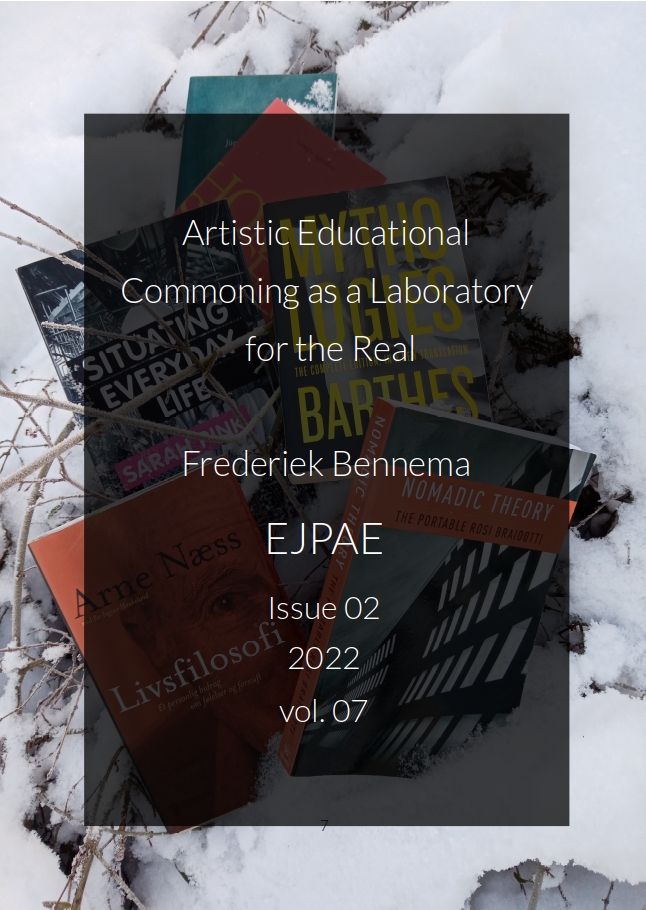Artistic Educational Commoning as a Laboratory for the Real
DOI:
https://doi.org/10.5281/zenodo.7451488Keywords:
Higher art education, neo-liberalism, commoning, learning through differenceAbstract
This article presents and discusses an extracurricular, co-constructed programme: “The Catalyst Club” as a form of Artistic Educational Commoning (AEC). Having been developed as part of a PhD research at Minerva Art Academy (Groningen, The Netherlands), The Catalyst Club (TCC) explored new perspectives on the education of artists and designers in a globalized world and created alternative modes of operating in higher art education. It brought together students, alumni, teachers from a range of disciplines, and external participants. During developing TCC, the author occupied a dual role as researcher and participant, working together with others in an artistic co-creative process. TCC drew on and developed the methods relating to Collaborative Autoethnography, Participatory Action Research and Artistic Research. This study presents AEC as a communal effort to build spaces for learning and experimentation. They are created through interaction and cooperation, based on social relations and the production of shared values. As such it can offer a counterbalance to the extensive individualisation, instrumentalization, and commodification of communities in higher art education. The article formulates some recommendations on how AEC can re-connect the education of artists and designers with the role of the arts in wider technological, societal, and political contexts.

Downloads
Published
Issue
Section
License
Copyright (c) 2022 Frederiek Bennema

This work is licensed under a Creative Commons Attribution 4.0 International License.
EJPAE provides immediate open access to all its published content. Users do not need to register or pay to read content.
https://creativecommons.org/licenses/by/4.0/
Authors of content published in European Journal of Philosophy in Arts Education (EJPAE) retain the copyright to their works. Content is free to be used by anyone as long as you "[...] give appropriate credit, provide a link to the license, and indicate if changes were made. You may do so in any reasonable manner, but not in any way that suggests the licensor endorses you or your use." and "No additional restrictions — You may not apply legal terms or technological measures that legally restrict others from doing anything the license permits." (from the Creative Commons licence agreement)
EJPAE does not charge any author or publication fees.
Authors are encouraged to deposit the final published version of their article for self-archiving (author's personal website) and/or archiving in an institutional repository immediately upon publication.




